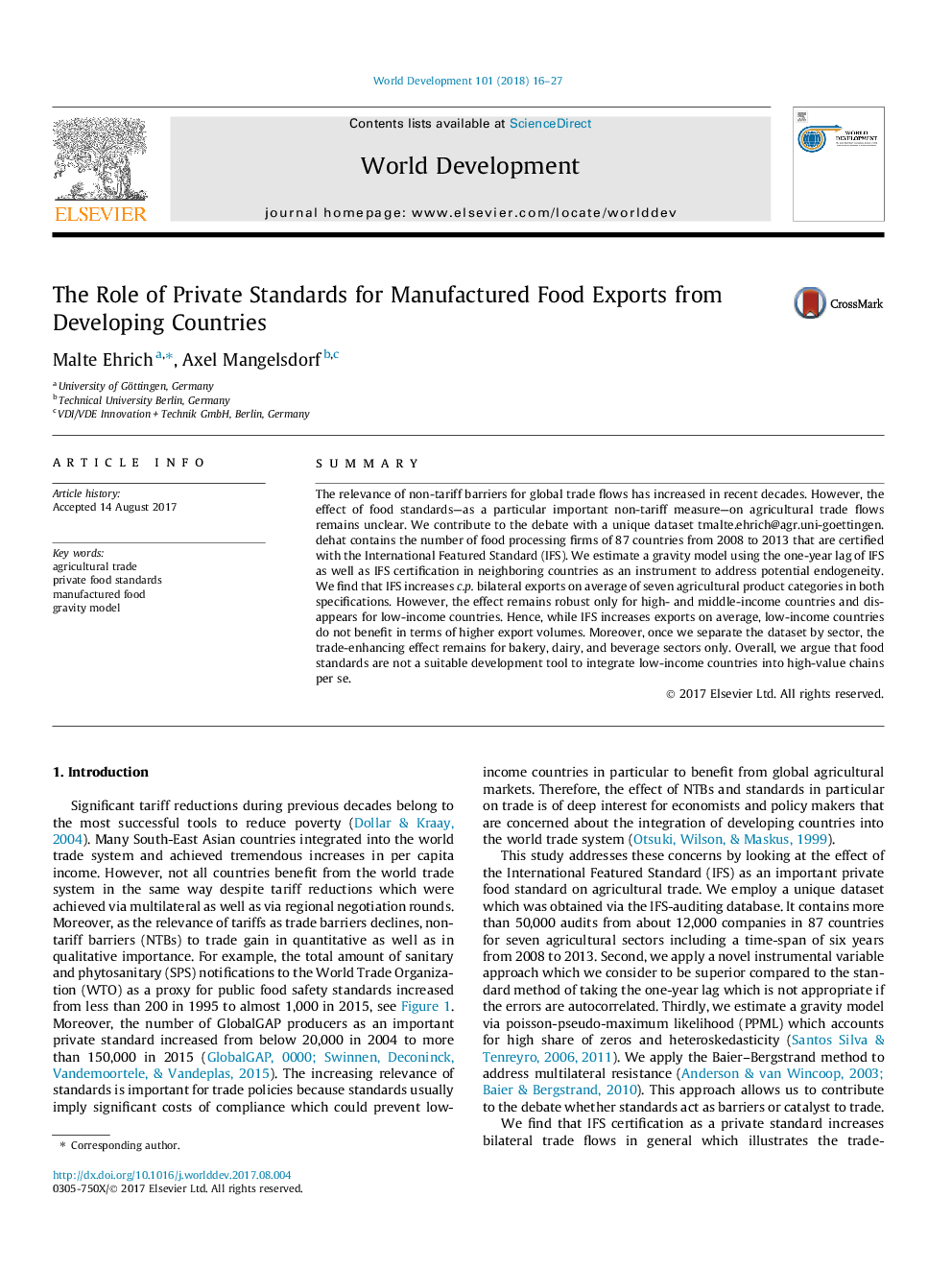| Article ID | Journal | Published Year | Pages | File Type |
|---|---|---|---|---|
| 5104983 | World Development | 2018 | 12 Pages |
Abstract
The relevance of non-tariff barriers for global trade flows has increased in recent decades. However, the effect of food standards-as a particular important non-tariff measure-on agricultural trade flows remains unclear. We contribute to the debate with a unique dataset that contains the number of food processing firms of 87 countries from 2008 to 2013 that are certified with the International Featured Standard (IFS). We estimate a gravity model using the one-year lag of IFS as well as IFS certification in neighboring countries as an instrument to address potential endogeneity. We find that IFS increases c.p. bilateral exports on average of seven agricultural product categories in both specifications. However, the effect remains robust only for high- and middle-income countries and disappears for low-income countries. Hence, while IFS increases exports on average, low-income countries do not benefit in terms of higher export volumes. Moreover, once we separate the dataset by sector, the trade-enhancing effect remains for bakery, dairy, and beverage sectors only. Overall, we argue that food standards are not a suitable development tool to integrate low-income countries into high-value chains per se.
Keywords
Related Topics
Social Sciences and Humanities
Economics, Econometrics and Finance
Economics and Econometrics
Authors
Malte Ehrich, Axel Mangelsdorf,
